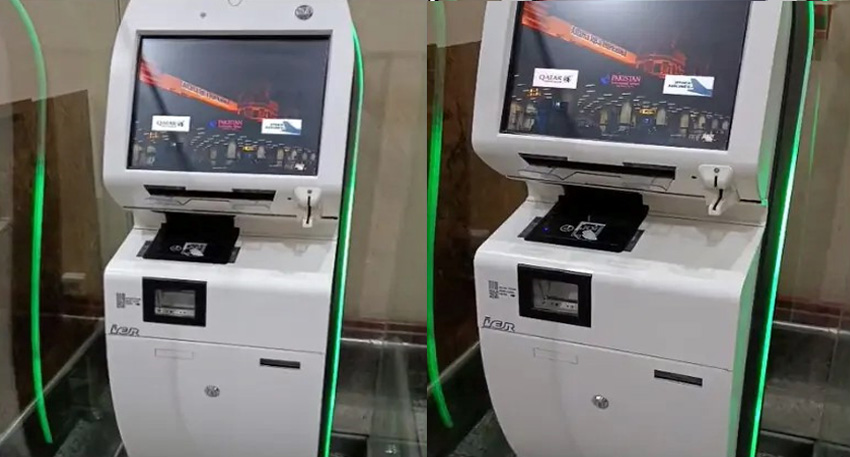
Passengers travelling abroad will now experience faster processing at major Pakistani airports, as self-service boarding card machines have been installed at Lahore, Islamabad, and Karachi terminals.
The new system is designed to maintain both boarding and immigration procedures, significantly reducing long queues and wait times.
According to airport sources, passengers will be able to obtain their boarding passes automatically upon entering the airport. Immigration clearance will be handled through an advanced profiling data app linked with the airports’ IBM Integrated Border Management System (IBMS).
Travelers are required to pre-fill their profile information into the app before arriving at the airport, that includes visit type and personal details etc. All airlines operating at these airports are integrated into the new system.
Only after completing their data entry will passengers be allowed to enter the airport lounges. Immigration officials will then process clearance within minutes by using the app to verify documents and responses to security questions.
The system is expected to curb travel attempts using bogus documents or fraudulent visas. Airport authorities say the new setup will not only expedite boarding but also enhance overall security.
The integration of all airlines and the advanced profiling mechanism marks a significant step toward modernising passenger processing at Pakistan’s major international airports.
Also Read: Pakistan seeks 10,000 PhD scholarships from China
It is worth mentioning that these changes come at a time when, during the first week of November 2025, FIA immigration teams offloaded more than 150 passengers at airports in Karachi, Lahore, and Islamabad.
These passengers were traveling to Saudi Arabia and other Gulf countries and had valid tickets, work visas, and complete documentation. However, they were offloaded under the pretext of a “verification process.” This caused significant distress, financial loss, and frustration among travelers. Officials, however, termed it part of a new strict scrutiny policy.
Later, FIA Director General Rifat Mukhtar clarified in a statement that no new travel restrictions had been imposed. Following this, FIA immigration officials stopped offloading passengers under the guise of additional scrutiny.
Officials further stated that the app will play a key role in preventing travel based on fake or bogus documents, helping eliminate offloading errors. The process will also involve minimal human intervention, which is expected to significantly reduce and potentially eliminate long queues at immigration counters.
Earlier in October, the Pakistan Airports Authority (PAA) completed the design phase of country’s much anticipated E-Gates project to provide automated immigration at busiest airports.
Under the plan, 100 e-gates will be installed at Lahore, Islamabad and Karachi international airports, enabling passengers to clear immigration in a matter of seconds through a biometric system linked with e-passports.
Automated border control systems such as e-gates use biometrics including facial images, fingerprints, or iris scans to verify travelers against identity documents. They are increasingly deployed worldwide to reduce queues, streamline immigration checks, and enhance security.




